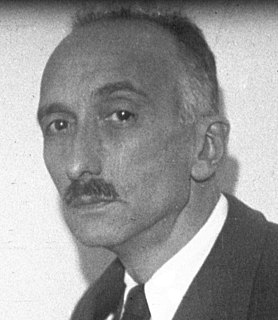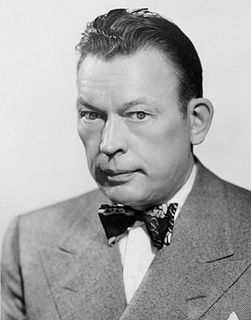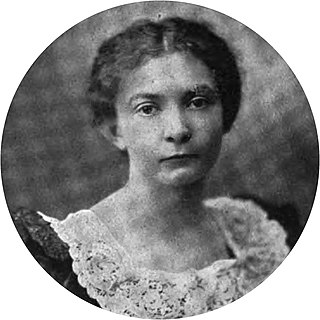Top 149 Sprung Quotes & Sayings - Page 3
Explore popular Sprung quotes.
Last updated on April 20, 2025.
There's this great fashion among writers, especially those who follow the transnational conservatives like V.S. Naipaul, to disavow one's place in the world as a sort of box that has sprung you but is only worthy of your scorn, because it once contained you. And I've been tempted to say foolish things, like "I am an American writer" or "I belong nowhere," but the truth is I'm perfectly proud of identifying as an Indian writer, even if that might hurt my bottom line.
The State always moves slowly and grudgingly towards any purpose that accrues to society's advantage, but moves rapidly and with alacrity towards one that accrues to its own advantage; nor does it ever move towards social purposes on its own initiative, but only under heavy pressure, while its motion towards anti-social purposes is self-sprung.
Change begets change. Nothing propagates so fast. If a man habituated to a narrow circle of cares and pleasures, out of which he seldom travels, step beyond it, though for never so brief a space, his departure from the monotonous scene on which he has been an actor of importance would seem to be the signal for instant confusion. The mine which Time has slowly dug beneath familiar objects is sprung in an instant; and what was rock before, becomes but sand and dust.
Breathes there the man, with soul so dead, Who never to himself hath said, This is my own, my native land! Whose heart hath ne'er within him burn'd, As home his footsteps he hath turn'd From wandering on a foreign strand! If such there breathe, go mark him well; For him no Minstrel raptures swell; High though his titles, proud his name, Boundless his wealth as wish can claim; Despite those titles, power, and pelf, The wretch, concentred all in self, Living, shall forfeit fair renown, And, doubly dying, shall go down To the vile dust, from whence he sprung, Unwept, unhonor'd, and unsung.
We shall therefore take an appropriately correct view of the origin of our life, if we consider our own embryos to have sprung immediately from those embryos whence our parents were developed, and these from the embryos of their parents, and so on for ever. We should in this way look on the nature of mankind, and perhaps on that of the whole animated creation, as one Continuous System, ever pushing out new branches in all directions, that variously interlace, and that bud into separate lives at every point of interlacement.
For a while the creative writing community sort of sprung out of places like Iowa and Syracuse. The graduates sort of went out, and they would found creative writing departments in the little colleges where they went, and then some of those would found other ones. I mean every college has got a creative writing department, so where are the jobs coming from? There are not any jobs out there.
I've had the good fortune to read a lot of great American writers in translation, and my absolute beloved, for me one of the greatest writers ever, is Mark Twain. Yes, yes, yes. And Whitman, from whom the whole of 20th-century poetry sprung up. Whitman was the origin of things, someone with a completely different outlook. But I think that he's the father of the new wave in the world's poetry which to this very day is hitting the shore.
Orpheus with his lute made trees, And the mountain tops that freeze, Bow themselves, when he did sing; To his music, plants and flowers Ever sprung; as sun and showers There had made a lasting spring. Every thing that heard him play, Even the billows of the sea, Hung their heads, and then lay by. In sweet music is such art, Killing care and grief of heart Fall asleep, or hearing, die.
My love is like a red, red rose That's newly sprung in June: My love is like the melody That's sweetly played in tune. How fair art thou, my bonnie lass, So deep in love am I; And I will love thee still, my dear, Till all the seas gang dry. Till all the seas gang dry, my dear, And the rocks melt with the sun; I will love thee still, my dear, While the sands of life shall run. And fare thee weel, my only love. And fare thee weel awhile! And I will come again, my love, Though it were ten thousand mile.
For many years I thought my job was to go to places where it would be difficult for most of the readers to ever get to. Now, in the more than 20 years I've been doing this, the concept of adventure-travel trips or expeditions by groups has sprung up. The places I went 20 years ago now have adventure-travel trips.
It seems that, after nineteen centuries of extraordinary glorification, the small Host for which so many cathedrals have sprung up, the small Host that has rested in millions of breasts and that has found a tabernacle and worshippers even in the desert - it seems that the triumphant Host of Lourdes and the Eucharistic Congresses of Chicago and Carthage remains as unknown, as secret as when it appeared for the first time in a room in Jerusalem. Light is in the world as in the days of St. John the Baptist, and the world does not know it
We do not receive wisdom, we must discover it for ourselves, after a journey through the wilderness which no one else can make for us, which no one can spare us, for our wisdom is the point of view from which we come at last to regard the world. The lives that you admire, the attitudes that seem noble to you, have not been shaped by a paterfamilias or a schoolmaster, they have sprung from very different beginnings, having been influenced by evil or commonplace that prevailed round them. They represent a struggle and a victory.
When we affect to condemn savages, we should remember that by doing so we asperse our own progenitors; for they were savages also.Who can swear that among the naked British barbarians sent to Rome to be stared at more than 1500 years ago, the ancestor of Bacon might not have been found?--Why, among the very Thugs of India, or the bloody Dyaks of Borneo, exists the germ of all that is intellectually elevated and grand. We are all of us--Anglo-Saxons, Dyaks and Indians--sprung from one head and made in one image.
Our feelings probably are not less strong at fifty than they were ten or fifteen years before; but they have changed their objects, and dwell on far different prospects. At five-and-thirty a man thinks of what his own existence is; when the maturity of age has grown into its autumn, he is wrapt up in that of others. The loss of wife or child then becomes more deplorable, as being impossible to repair; for no fresh connection can give us back the companion of our earlier years, nor a "new-sprung race" compensate for that, whose career we hoped to see run.
Whoever lives for poetry must read everything. How often has the light of a new idea sprung for me from a simple brochure! When one allows himself to be animated by new images, he discovers iridescence in the images of old books. Poetic ages unite in a living memory. The new age awakens the old. The old age comes to live again in the new. Poetry is never as unified as when it diversifies.
Its [the anthropological method] power to make us understand the roots from which our civilization has sprung, that it impresses us with the relative value of all forms of culture, and thus serves as a check to an exaggerated valuation of the standpoint of our own period, which we are only too liable to consider the ultimate goal of human evolution, thus depriving ourselves of the benefits to be gained from the teachings of other cultures and hindering an objective criticism of our own work.
The man who knelt before her would have sprung from her needles, even down the ghostly flecks of silver in his hair. She had not known before that she wanted all these things, that she preferred dark hair and a slightly cruel expression, that she wishes for tallness, or that a man kneeling might thrill her.
Those who actually set out to see the fall of a city or those who choose to go to a front line, are obviously asking themselves to what extent they are cowards. But the tests they set themselves - there is a dead body, can you bear to look at it? - are nothing in comparison with the tests that are sprung on them. It is not the obvious tests that matter (do you go to pieces in a mortar attack?) but the unexpected ones (here is a man on the run, seeking your help - can you face him honestly?).
I was just working in the shop and all of a sudden something just triggered in me, and I started shaking. And then I walked back into the house and my wife asked, 'What's the matter?' And I said, 'I don't feel good.' And tears, uncontrollable tears, was coming out of my eyes and she says, 'What's the matter?' And I told her. I said, 'I just thought about that execution that I did two days ago, and everybody else's that I was involved in.' And what it was, something triggered within, and it just, everybody - all of these executions all sprung forward.
Innumerable times a whole Christian community has broken down because it had sprung from a wish dream… Every human wish dream that is injected into the Christian community is a hindrance to genuine community and must be banished if genuine community is to survive. He who loves his dream of a community more than the Christian community itself becomes a destroyer of the latter, even though his personal intentions may be ever so honest and earnest and sacrificial.
It had that comfortably sprung, lived-in look that library books with a lively circulation always get; bent page corners, a dab of mustard on page 331, a whiff of some reader's spilled after-dinner whiskey on page 468. Only library books speak with such wordless eloquence of the power good stories hold over us, how good stories abide, unchanged and mutely wise, while we poor humans grow older and slower.
I am ready to talk today. I have been in a great many councils, but I am no wiser. We are all sprung from a woman, although we are unlike in many things. We can not be made over again. You are as you were made, and as you were made you can remain. We are just as we were made by the Great Spirit, and you can not change us ; then why should children of one mother and one father quarrel ? — why should one try to cheat the other ? I do not believe that the Great Spirit Chief gave one kind of men the right to tell another kind of men what they must do.
Love is not a hot-house flower, but a wild plant, born of a wet night, born of an hour of sunshine; sprung from wild seed, blown along the road by a wild wind. A wild plant that, when it blooms by chance within the hedge of our gardens, we call a flower; and when it blooms outside we call a weed; but, flower or weed, whose scent and colour are always, wild!
When you delve deep enough, you find that practically every great fortune and great enterprise in America have sprung from the courageous enterprise of some individual. It was Commodore Vanderbilt's enterprise in switching first from running a ferryboat to running other ships, and then, when he was well along in years, his enterprise in switching into railroading, that created what was to become one of the most notable fortunes in the history of the world.
And again it snowed, and again the sun came out. In the mornings on the way to the station Franklin counted the new snowmen that had sprung up mysteriously overnight or the old ones that had been stricken with disease and lay cracked apart-a head here, a broken body and three lumps of coal there-and one day he looked up from a piece of snow-colored rice paper and knew he was done. It was as simple as that: you bent over your work night after night, and one day you were done. Snow still lay in dirty streaks on the ground but clusters of yellow-green flowers hung from the sugar maples.
While [the Arians], like men sprung from a dunghill, truly "spoke from the earth" [Jn. 3:31], the bishops [of Nicea], not having invented their phrases for themselves, but having testimony from their fathers, wrote as they did. For ancient bishops, of the great Rome and our city [i.e., Alexandria, Egypt, where Athanasius was bishop], some 130 years ago, wrote and censured those who said that the Son was a creature and not consubstantial with the Father.
But the trees seemed to know me. They whispered among themselves and beckoned me nearer. And looking around, I noticed the other small trees and wild plants and grasses had sprung up under the protection of the trees we had placed there. The trees had multiplied! They were moving. In one small corner of the world, Grandfather's dream was coming true and the trees were moving again.
She was coming. I watched the slight figure grow out of the dusk between the trees, and the darkness in which I had walked of late fell away. The wood that had been so gloomy was a place of sunlight and song; had red roses sprung up around me I had felt no wonder. She came softly and slowly with bent head and hanging arms, not knowing that I was near. I went not to meet her - it was my fancy to have her come to me still - but when she raised her eyes and saw me I fell upon my knees.
The wilderness is near as well as dear to every man. Even the oldest villages are indebted to the border of wild wood which surrounds them, more than to the gardens of men. There is something indescribably inspiriting and beautiful in the aspect of the forest skirting and occasionally jutting into the midst of new towns, which, like the sand-heaps of fresh fox-burrows, have sprung up in their midst. The very uprightness of the pines and maples asserts the ancient rectitude and vigor of nature. Our lives need the relief of such a background, where the pine flourishes and the jay still screams.




























